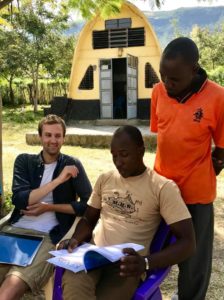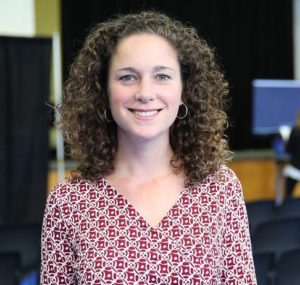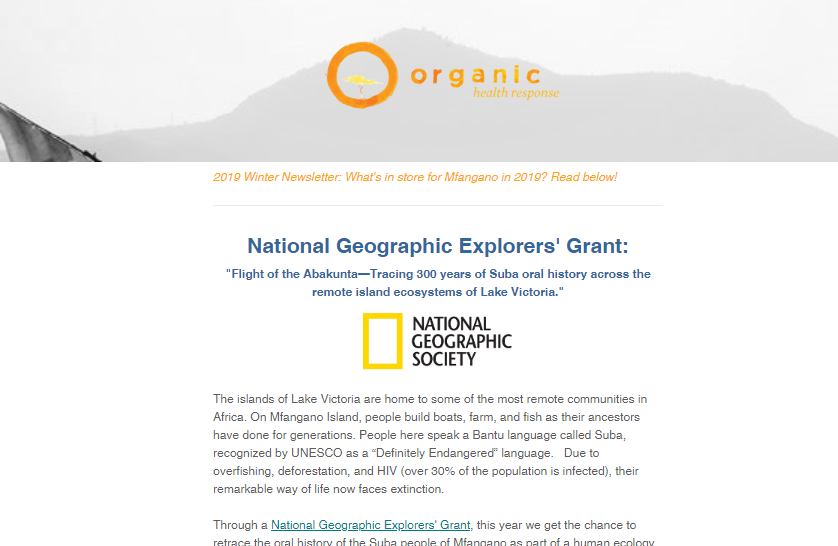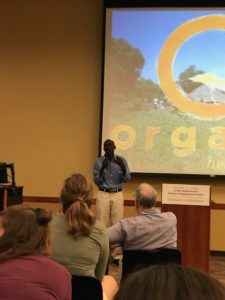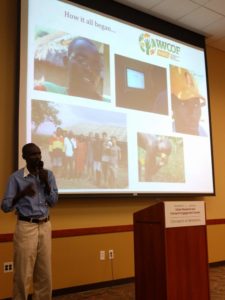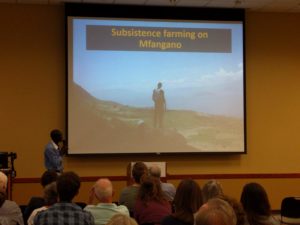During the summer of 2019, a team of three interdisciplinary health science students from the University of Minnesota traveled to Mfangano Island, Kenya. Under the mentorship of Dr. Charles Salmen they assisted with OHR’s ongoing research projects including the Health Navigation Program and MOMENTUM Study (Monitoring Maternal Emergency Navigation and Triage on Mfangano).
The Health Navigation Program trains community health workers in the villages throughout the island to coordinate referrals and expedite emergency care transfers to the mainland, with an additional focus on minimizing obstetrical and neonatal complications through the establishment of birth plans with pregnant mothers. The MOMENTUM Study is a 12-month study that screens for all obstetric and neonatal emergency cases in order to measure and evaluate delays in access to emergency maternal and neonatal care.
The summer Minnesota team consisted of Eileen Delehanty, a Masters in Public Health student, Katie Beck-Esmay, a second-year medical student, and Nyika Freeberg, a pre-medical student. The team jumped right into the Ekialo Kiona (EK) Center operations, attending Health Navigation meetings, responding to emergency activations alongside the emergency boat coxswain, Walter Opiyo, and accompanying Evance Ogola, a public health student from Kenya’s Maseno University. Additionally, the team worked closely with Violet Auma, the Health Navigation Data Clerk, and Peres Okinyi, the Health Navigation Coordinator, to improve the database for both data entry and extraction.
The Health Navigation Program and MOMENTUM Study were recently showcased at the Inaugural Emergency Medicine Conference in Uganda by Minnesota medical student Nick Deslauriers, research manager Gor Ouma, and study coordinator Evanace Ogola.
These students are working through the Mfangano Community Health Field Station, a new collaboration with the University of Minnesota Center for Global Health & Social Responsibility.

Eileen with some of her host family members.
Eileen Delehanty, a Masters in Public Health student, completed her required public health field experience (APEx) on Mfangano Island. Interested in better understanding the promotion of community health in resource limited settings, Eileen worked to streamline data collection and analysis, produced a training manual of standard operating procedures for the MOMENTUM study and assisted in grant writing for the Health Navigation project. As a community health promotion student, much of her time was spent translating information from community members and focus groups to data ready for analysis. Dubbed the “database queen,” she also provided training for local EK staff in database management and statistical analysis.
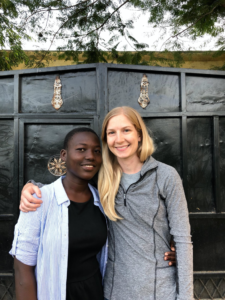
Katie with her host sister, Sonia.
Katie Beck-Esmay, a University of Minnesota medical student and Judd Fellow, arrived on the island eager to learn and work with EK staff and community leaders to expand experiential learning exchange opportunities for youth on the island and Minneapolis. While much of her time on Mfangano was spent assisting the Health Navigation Program, she also worked closely with EK staff and community members to develop ideas for a sustainable, community-led Emergency Fund that could serve to cover the costs of fuel and maintenance of the emergency boat and reduce the out-of-pocket costs of boat use. The goal is to pilot one of the Emergency Fund ideas in the near future.
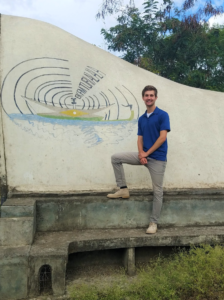
Nyika in front of the old radio station building.
Nyika Friberg is a pre-medical student and recent graduate of the University of Minnesota. Having attended high school in central Kenya, he was able to provide unique perspective and motivation working with local communities. Nyika primarily supported staff on the MOMENTUM study, assisting with chart reviews at island and mainland facilities and with quantifying delays from patient surveys. The prolonged delays in receiving care seen in these surveys are a continual reminder of the value of and need for OHR’s work. Nyika will remain on Mfangano through the end of 2019, although the majority of his time is now spent in preparation for the upcoming National Geographic expedition!
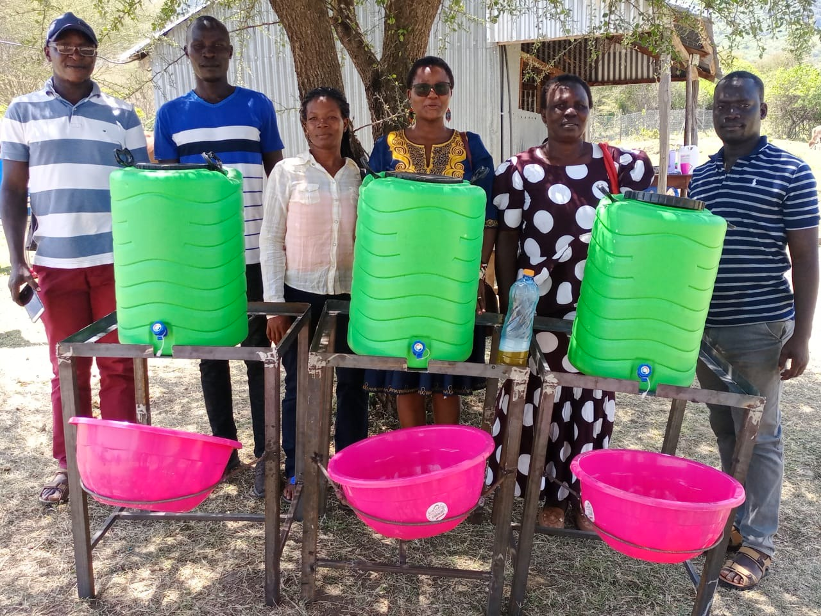
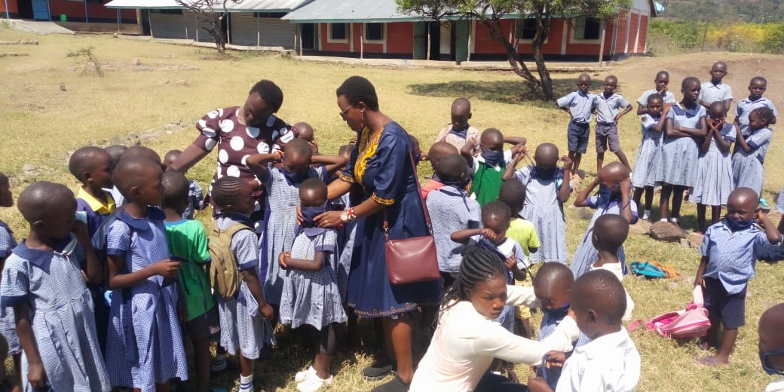


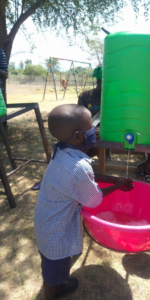
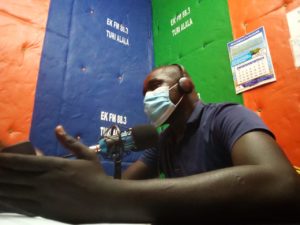
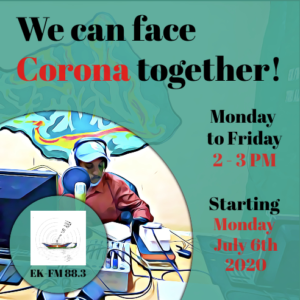
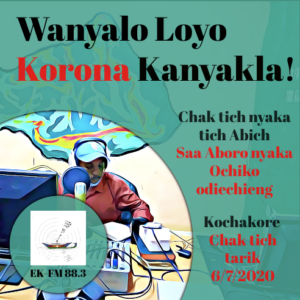
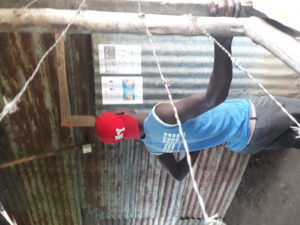
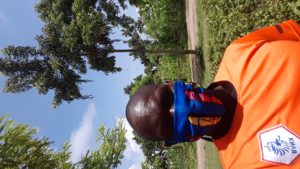 These students are collaborating with the OHR executive board (e.g. Dr. Lily Muldoon, Dr. Chas Salmen, Dr. Nick DesLauriers and Kelsi Hines) as well as Ekialo Kiona Center managers, Robinson Okeyo and Samwel Karan, to provide educational materials about COVID-19.
These students are collaborating with the OHR executive board (e.g. Dr. Lily Muldoon, Dr. Chas Salmen, Dr. Nick DesLauriers and Kelsi Hines) as well as Ekialo Kiona Center managers, Robinson Okeyo and Samwel Karan, to provide educational materials about COVID-19.